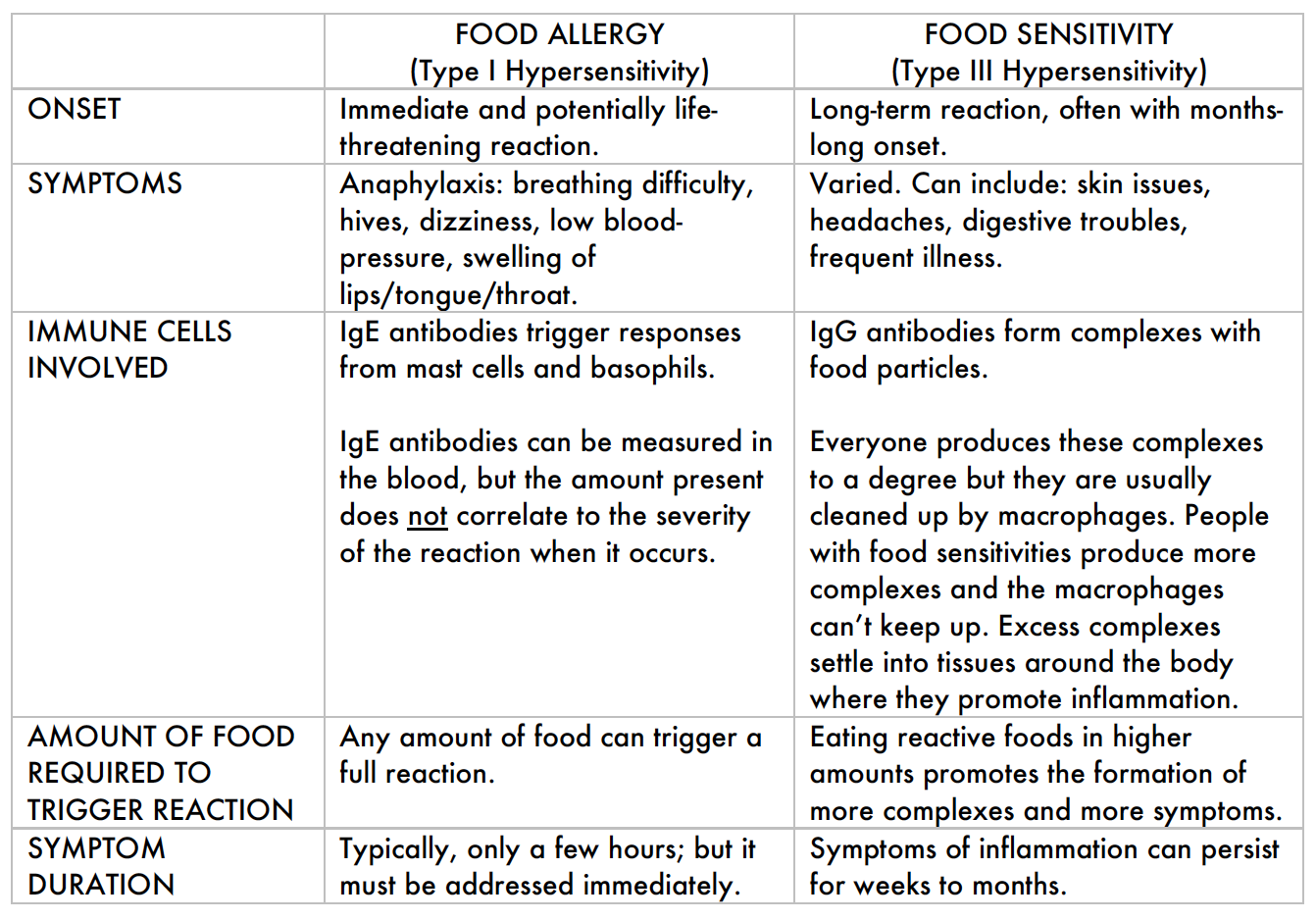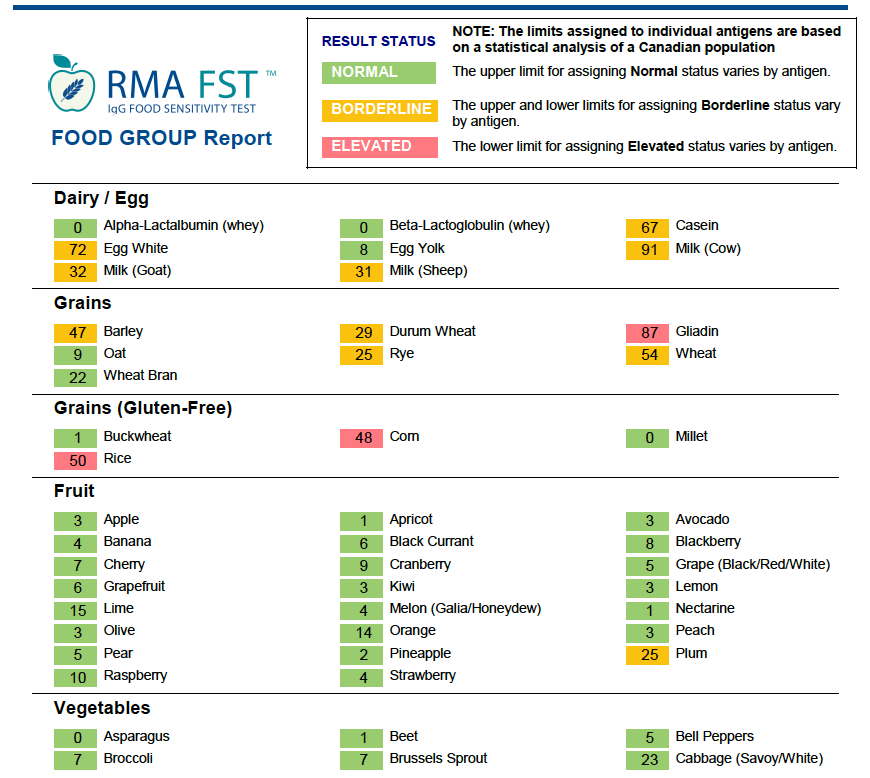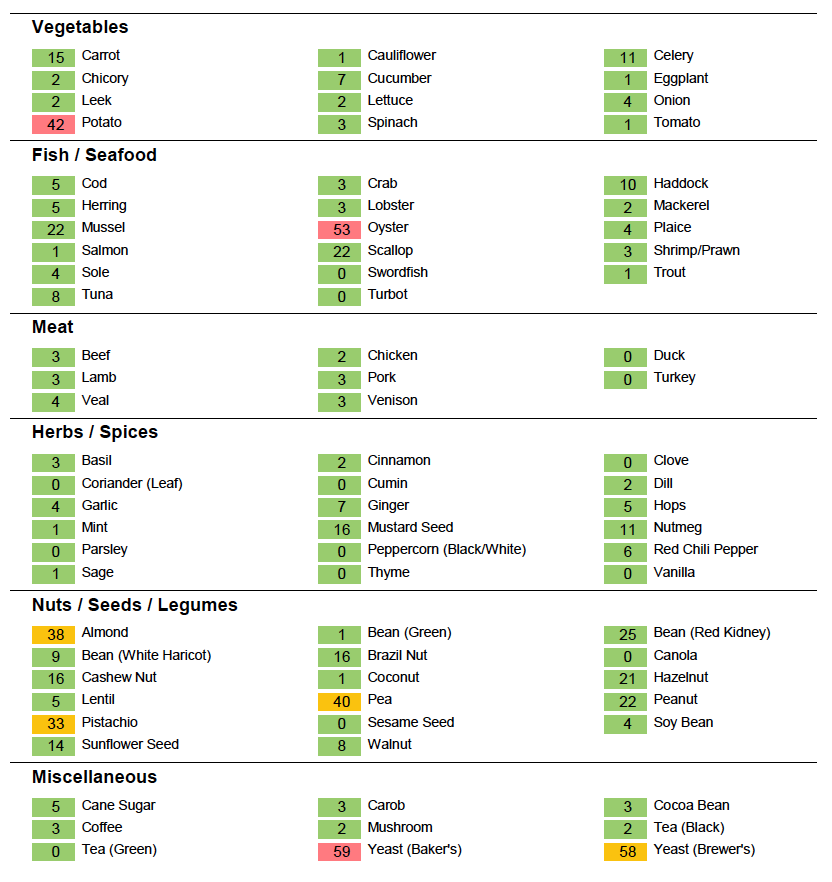Food Sensitivities
Food sensitivities are immune responses to specific foods that promote issues within the body. If the triggering food remains in the diet, the continued response can promote or aggravate many health concerns. These include, but are not limited to:
Skin Issues (acne, eczema, psoriasis, rosacea)
Digestion Issues (IBS, Crohn Disease, Ulcerative Colitis, acid reflux, vomiting)
Migraines
Behavioral Issues (ADHD, autism)
Mood Issues (anxiety, depression)
It is important to make a distinction between a food sensitivity and a food allergy. A food sensitivity is NOT a food allergy.
While allergists and the medical community agree that antigen-antibody complexes are formed with IgG and triggering foods, not everyone agrees that these complexes cause inflammation. A growing interest on the subject has prompted more research on food sensitivities, and the effects of removing confirmed reactive foods. This research suggests that IgG food sensitivities can play a part in inflammation and symptom aggravation.
BENEFITS OF FOOD SENSITIVITY TESTING AND REMOVAL OF REACTIVE FOODS
Many studies have demonstrated positive effects of removing foods found to be reactive on an IgG food sensitivity test. Particular areas of benefit are: IBS, migraine headaches, and weight loss.
A study done by the British Allergy Foundation in 2007 demonstrated significant symptom improvement with the removal of foods indicated on IgG testing. Most patients who strictly avoided reactive foods saw improvements within 3 weeks. The relationship was made clearer when symptoms returned upon reintroduction of the reactive foods.
76% saw significant symptom improvement – especially digestive and mental health (anxiety, depression)
68% saw benefit within 3 weeks
92% had symptoms return when reactive foods were reintroduced to the diet
It must also be noted, that not all digestive symptoms are the result of food sensitivities, and food sensitivities are rarely the sole cause of digestive or health issues. It’s important to discuss your digestive concerns with your naturopathic doctor who can help decipher and treat the cause of your discomfort.
Testing is simple and quick. A small blood sample is collected via finger poke or venous blood draw and sent away to the lab. The results are sent back within a couple weeks, showing which foods were reactive. The report will look something like this SAMPLE:




